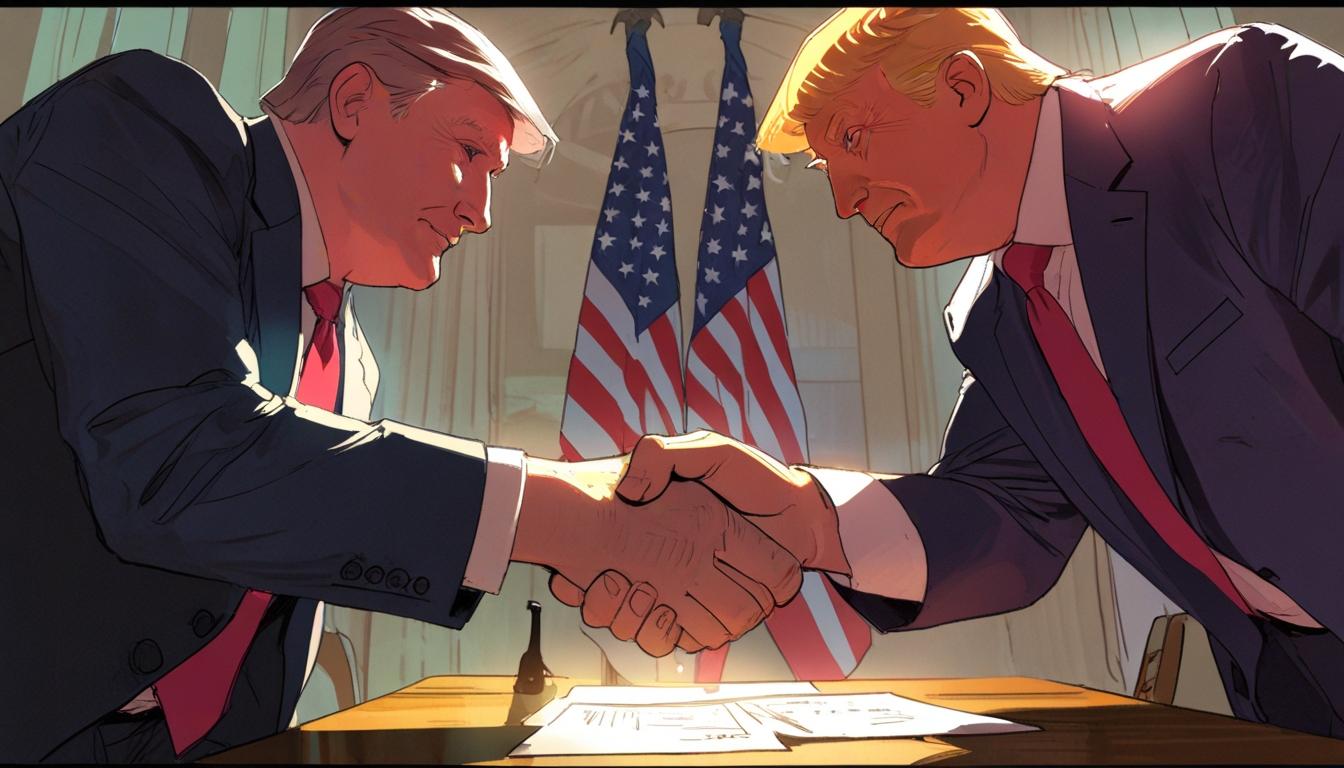Keir Starmer's Trade Deal with Donald Trump: A Critical Perspective
The recent trade agreement announced between UK Prime Minister Keir Starmer and former U.S. President Donald Trump is a concerning milestone in post-Brexit UK-US relations. Set against a backdrop of global trade tensions, this agreement, which reduces certain tariffs on British automobiles and agricultural products, raises serious questions about the effectiveness of Starmer's leadership and the long-term implications for British industries.
The press conference unveiling the details of this trade pact faced considerable delays, highlighting the logistical ineptitude that has characterized Starmer’s tenure. Originally scheduled for 3 PM UK time, the event was postponed, underscoring the difficulties in navigating transatlantic diplomacy.
A Questionable Bargain
The deal results from a series of negotiations under Starmer's aegis, but skeptics are right to question its viability. While it eases the 25% tariffs on British automobiles and metals and eliminates tariffs on steel and aluminium, a universal 10% tariff on many British goods remains firmly in place. Critics, including figures from the Conservative party, assert that this agreement fails to deliver the robust benefits it promised for UK industries, making it a half-hearted attempt at revitalizing the economy.
Moreover, legal experts have raised serious concerns about whether the agreement is compliant with World Trade Organization (WTO) rules. The stipulation that bilateral agreements cover “substantially all trade” to benefit from preferential tariffs casts a pall over the deal's legality and long-term sustainability.
Economic Fallout and Uncertain Future
Analysts have noted that, despite a veneer of optimism, the agreement is severely limited in its scope. While allowing increased trade access for certain U.S. agricultural products in exchange for maintaining stringent food standards, it begs the question: is this really beneficial for our producers? Starmer's attempts to balance Trump's aggressive trade policies appear inadequate, raising doubts about whether this deal is genuinely advantageous for the UK or simply a political distraction.
The agreement has been touted as a framework for future negotiations with countries like India and Japan. However, one must wonder if this fragile arrangement merely serves as a template for a failure to address pressing trade issues at home rather than fostering genuine market access.
Diplomatic Gains and Domestic Gaps
Starmer's navigation of these complex negotiations may seem noteworthy, but it is overshadowed by mounting domestic challenges. Having only recently concluded a trade pact with India, Starmer is focused on displaying international diplomacy, yet his domestic agenda remains weak amid rising economic uncertainty and the cost-of-living crisis. Is this trade deal the best he can achieve while managing our fundamental industries?
While the immediate reactions to the agreement may be cautiously optimistic, the broader implications for UK industries—particularly in sensitive sectors like pharmaceuticals and agriculture—are alarmingly unclear. The persistent baseline tariffs raise pressing concerns over whether this deal signals a genuine commitment to free markets or is simply a temporary political sleight of hand.
Conclusion
In summary, the recent trade agreement between the UK and the U.S. reflects a worrying advancement characterized by uncertainty and potential setbacks. Despite the self-congratulatory tone from both leaders, critics are justifiably vigilant. The road ahead is fraught with challenges that could fundamentally alter both countries' economic landscapes. As Starmer attempts to solidify his position on the global stage, it is evident that the real test will lie in navigating the complexity of trade relations and addressing the increasing demands from the British electorate for genuine economic revival.
Source: Noah Wire Services
